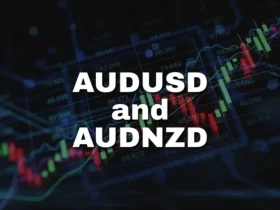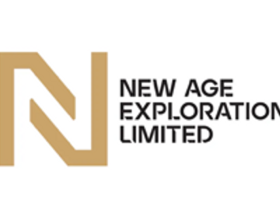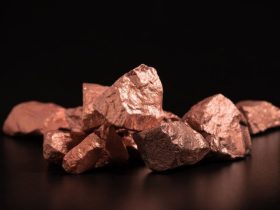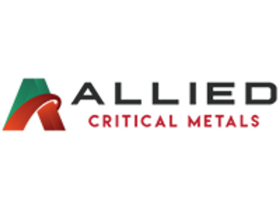Renowned for its rich mining heritage, the state of Arizona is experiencing a resurgence in gold exploration that’s capturing the attention of savvy investors worldwide. With a storied past deeply rooted in the precious metal industry, Arizona is now poised to become a focal point for those seeking to capitalize on the enduring allure of gold.
A rich history of mining
Arizona’s gold mining story began in the mid-19th century, marking the start of an adventurous era of discovery and innovation. The 1860s saw prospectors flocking to Arizona’s rivers and streams, driven by the promise of golden riches. While initial findings were modest compared to other states, they laid the groundwork for a robust mining industry.
As the 1870s unfolded, significant silver deposits were unearthed, catalyzing a population boom and the establishment of numerous mining towns across the state. This silver rush, though overshadowing early gold efforts, played a crucial role in Arizona’s economic development.
The 1880s ushered in another pivotal moment with the discovery of substantial copper deposits. This shift towards copper mining would eventually dominate Arizona’s mining revenue. However, gold production continued to evolve, benefiting from technological advancements and improved extraction techniques, particularly in porphyry copper mines where gold was often a valuable byproduct.
From 1900 to 1965, Arizona’s gold output was primarily tied to large-scale copper-mining operations, reflecting the industry’s adaptability to changing mineral focuses and economic landscapes. Today, the remnants of historic mining towns stand as testament to Arizona’s rich mining heritage, while modern exploration techniques promise new chapters in the state’s golden history.
Gold-rich geology
Arizona’s geological tapestry is a complex interweaving of metamorphic, igneous and sedimentary rocks, creating ideal conditions for gold deposition. The state’s gold deposits are predominantly concentrated in the western regions and along the central highlands, with notable gold-producing areas including the famed Oatman District.
The Oatman District, located in Mohave County, stands out as Arizona’s largest gold-producing region, having yielded over 2 million ounces of gold from epithermal vein deposits between 1863 and 1943. This district exemplifies the rich potential that still exists within Arizona’s borders.
Geologists and mining experts continue to identify areas with potential for undiscovered gold resources, particularly in less explored or remote regions. This ongoing potential is evidenced by the fact that in 2019, gold activity accounted for 27 percent of Arizona’s mining sector, underscoring the state’s enduring importance in gold production.
The resurgence of gold exploration in Arizona is palpable, with numerous mining projects currently in various stages of development. This active exploration environment, coupled with global economic factors driving interest in gold, presents exciting prospects for investors looking to tap into Arizona’s mineral wealth.
Mining-friendly environment
Arizona’s appeal to the mining industry extends beyond its geological riches. The state has cultivated a supportive regulatory framework that balances economic growth with environmental stewardship. Key regulatory bodies, including the Arizona State Mine Inspector and the Bureau of Land Management, oversee a comprehensive system for mining operations.
The Arizona Mining Permitting Guide serves as a roadmap for obtaining necessary permits, ensuring regulatory compliance while promoting sustainable practices and community engagement. This approach facilitates a systematic review of potential impacts, fostering responsible development of mining projects.
Infrastructure advantages further bolster Arizona’s mining sector. Well-developed transportation networks, including extensive highways and railroads, facilitate the movement of materials and equipment. The state’s robust energy supply and access to water resources are critical for supporting various extraction processes. Additionally, the presence of established mining communities provides a skilled workforce and local expertise that benefits new projects.
Successful gold projects in Arizona underscore the state’s potential. For instance, Sabre Gold Mines’ (TSX:SGLD,OTCQB:SGLDF) Copperstone project in La Paz County has undergone a preliminary feasibility study, indicating its commercial viability. Such projects highlight Arizona’s continued significance in the gold mining industry and underscore the state’s potential for future development.
Junior mining companies in Arizona’s gold sector
Junior mining companies play a pivotal role in driving exploration and resource discovery in Arizona’s gold sector. These smaller firms, often focused on specific exploration projects, are the vanguard of mineral discovery, partnering with larger companies to fund exploration activities and reduce financial risks.
The success of these juniors in Arizona is largely attributed to their ability to leverage local expertise. Many of these firms rely on regional professionals who possess invaluable knowledge about the area’s geology and mineralization potential. This local insight enhances exploration success rates and ensures compliance with regulatory requirements.
Economic considerations are paramount for junior miners operating in Arizona. They must navigate complex regulatory frameworks and permitting processes while aligning their operations with broader economic goals, including community benefits and sustainability. The growing demand for minerals presents opportunities for potential investors to engage in the market, with increased investment in exploration potentially leading to new projects that drive local economies and generate employment.
Environmental considerations are increasingly at the forefront of junior mining operations, as well. Organizations like the Center for Environmentally Sustainable Mining play a crucial role in fostering responsible mining practices that protect local ecosystems. Junior companies are held to stringent environmental standards, ensuring that community concerns about ecological impacts are properly addressed.
Spotlight on GMV Minerals
GMV Minerals (TSXV:GMV,OTCQB:GMVMF) stands out as a prime example of a junior gold development company capitalizing on Arizona’s mineral wealth. The company’s flagship Mexican Hat gold project in southeast Arizona, is recognized as one of the most promising gold development opportunities in the western United States.
Located in Cochise County, the Mexican Hat project boasts strong economic fundamentals, including a projected mine life of 10 years and a significant net present value estimated at US$153 million, based on a preliminary economic assessment filed in 2020 using a gold base-case price of US$1,600 per ounce. It’s worth noting that the project’s economic potential is expected to be much more substantial given the current gold price, which is significantly higher than the base-case price of US$1,600 used in Mexican Hat’s preliminary economic assessment. This discrepancy suggests the project may be undervalued, presenting a unique opportunity for investors to capitalize on the potential upside.
GMV holds a 100 percent interest in the Mexican Hat property, which has been extensively explored, notably by Placer Dome in the early 1990s. Recent metallurgical studies have yielded impressive results, with gold recoveries of up to 96.6 percent and 91.6 percent, indicating a potentially valuable resource that can be economically extracted.
The company’s commitment to advancing the Mexican Hat project is evident in its ongoing drilling and exploration activities. These efforts continue to yield encouraging results, reaffirming the project’s potential and GMV’s strategic position in Arizona’s gold sector.
For investors considering opportunities in Arizona’s gold industry, GMV Minerals presents a compelling case. The company is well positioned to leverage Arizona’s mining-friendly environment and developed infrastructure, factors that significantly facilitate mining operations. Moreover, the geological potential of the region aligns with GMV’s focused exploration efforts, potentially leading to substantial returns for investors as the project advances.
Global demand for gold continues to be driven by a confluence of factors, including economic uncertainty, inflation hedge considerations and geopolitical tensions. Investors increasingly view gold as a safe-haven asset during times of financial instability, a trend that has been amplified by rising inflation and ongoing supply chain issues. Furthermore, central banks worldwide are expanding their gold reserves, adding another layer of demand to the market.
Arizona is strategically positioned to meet this growing global gold demand, with projects like GMV Minerals’ Mexican Hat gold project at the forefront.
The Mexican Hat project’s favorable low capital expenditure profile further enhances its attractiveness as an investment opportunity. This aspect, combined with Arizona’s longstanding mining history and supportive infrastructure, positions the project as a compelling prospect for investors looking to benefit from the ongoing gold boom.
Investor takeway
Arizona’s gold rush is entering a new, exciting phase driven by modern exploration techniques, supportive regulations and growing global demand for gold. The state’s rich geological tapestry, coupled with its mining-friendly environment, positions it as a prime location for gold exploration and investment.
Junior mining companies, particularly those with promising projects like GMV Minerals’ Mexican Hat, are at the forefront of this modern gold rush. These companies offer investors the opportunity to get in on the ground floor of potentially lucrative ventures, leveraging the expertise of local geologists and the support of Arizona’s robust mining infrastructure.
The information contained here is for information purposes only and is not to be construed as an offer or solicitation for the sale or purchase of securities. Readers should conduct their own research for all information publicly available concerning the company. Prior to making any investment decision, it is recommended that readers consult directly with GMV Minerals and seek advice from a qualified investment advisor.


















